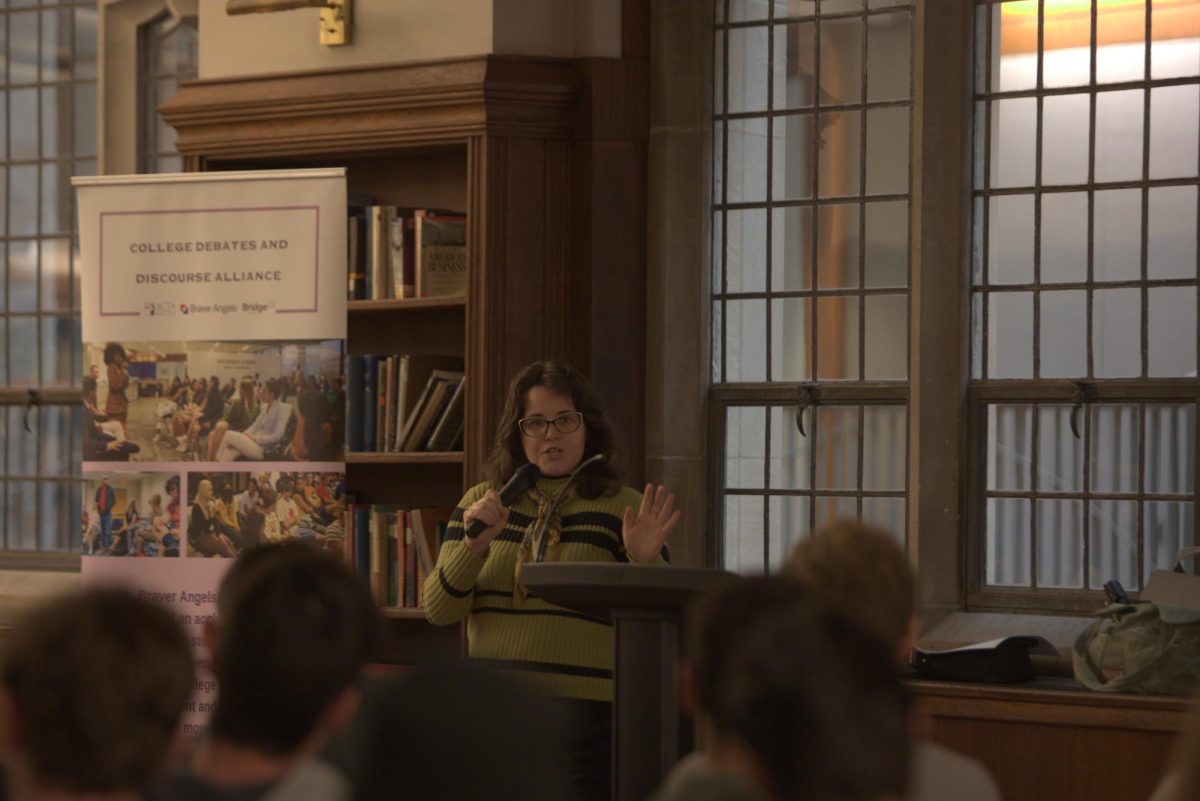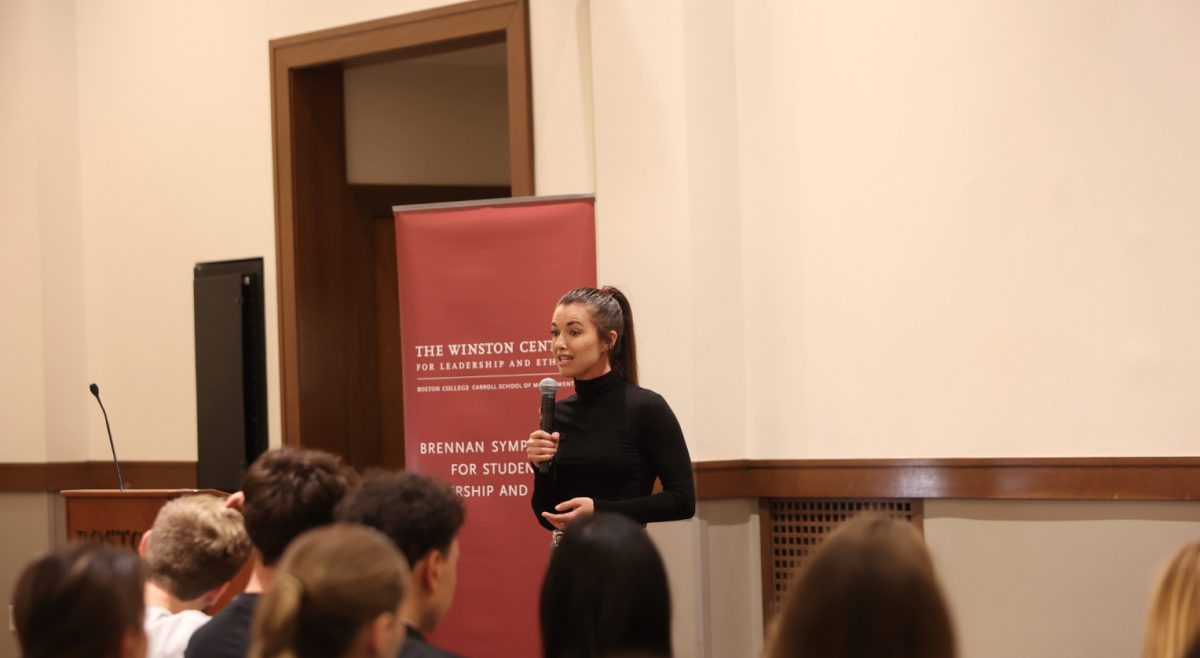Writer, historian, and activist Rebecca Solnit spoke on the silencing of women and altering of reality in the context of today’s political climate on Wednesday evening.
Solnit said that women who try to offer their perspective are often crowded out by powerful men manufacturing their own narrative. She read a passage from one of her essays, “They Think They Can Bully the Truth,” describing the phenomenon.
“Cousin to the noun ‘dictator’ is the verb ‘dictate,’” she said. “There are among us people who assume their authority is so great they can dictate what happened, that their assertions will override witnesses, videotapes, evidence, the historical record, that theirs is the only voice that matters, and it matters so much it can stand tall atop the conquered facts.”
Instead of focusing on the immoral actions of those in power, the blame goes to the person sharing their story.
“Silence is a pervasive force that is distributed differently for men and women,” she said. “If voices are a central aspect to our humanity, to be rendered voiceless is to be dehumanized.”
Solnit went on to reflect on examples in politics and pop culture. She noted that in such situations, men in power are indignant when perspectives different from their own are proposed to them. She specifically cited Brett Kavanaugh’s confirmation hearings as a particularly apt comparison, calling it “the ugliest thing [she] could imagine,” but noting that none of the beats the hearing hit were new.
“It was such a conventional example of this counterfactual authoritarianism, this insistence of dictating reality,” she said.
Solnit also spoke about physical abuse and harassment that singer and songwriter Kesha Sebert faced while producer Lukasz Gottwald, known professionally as Dr. Luke, had her under contract. According to Solnit, Kesha’s legal defeats were the consequence of blaming the survivor rather than the perpetrator.
Solnit clarified what the dictation and altering of reality means by defining what it was not.
“The opposite of bullies are people who tell you the truth as they understand it,” she said.
Solnit tied the concept back to the nature of social media: Solnit said people are drawn to content that is more extreme than the perspective they had at first. This can be introduced through YouTube video recommendations and explore page content that are based on previous activity. She pointed to the pain inflicted on the parents of the Sandy Hook victims by conspiracy theories surrounding the incident as a high-profile example.
As a writer, she aims to break the silence on behalf of the voiceless, in part because she sees the inability to tell your story as a living death.
“Liberation is always a part of the storytelling process,” she said. “Breaking stories and breaking silences, making new stories and finding ways to tell old stories. A free person tells her own story, a valued person lives in a society in which the story has a place.”
She described the feminist experiment as wildly successful, yet incomplete, concluding that the work of telling the truth and listening to those who are silenced begins as a task during our day-to-day lives.
“Stories save your life and stories are your life,” Solnit said. “We make stories to save ourselves or help ourselves or others.”
Featured Image by Jess Rivilis / For the Heights













